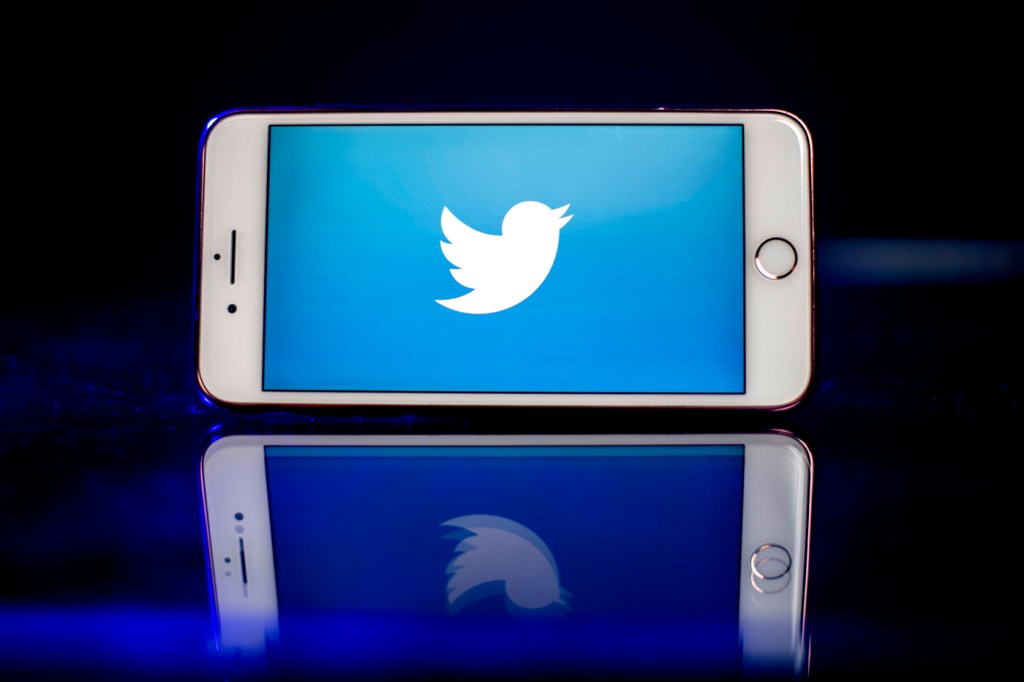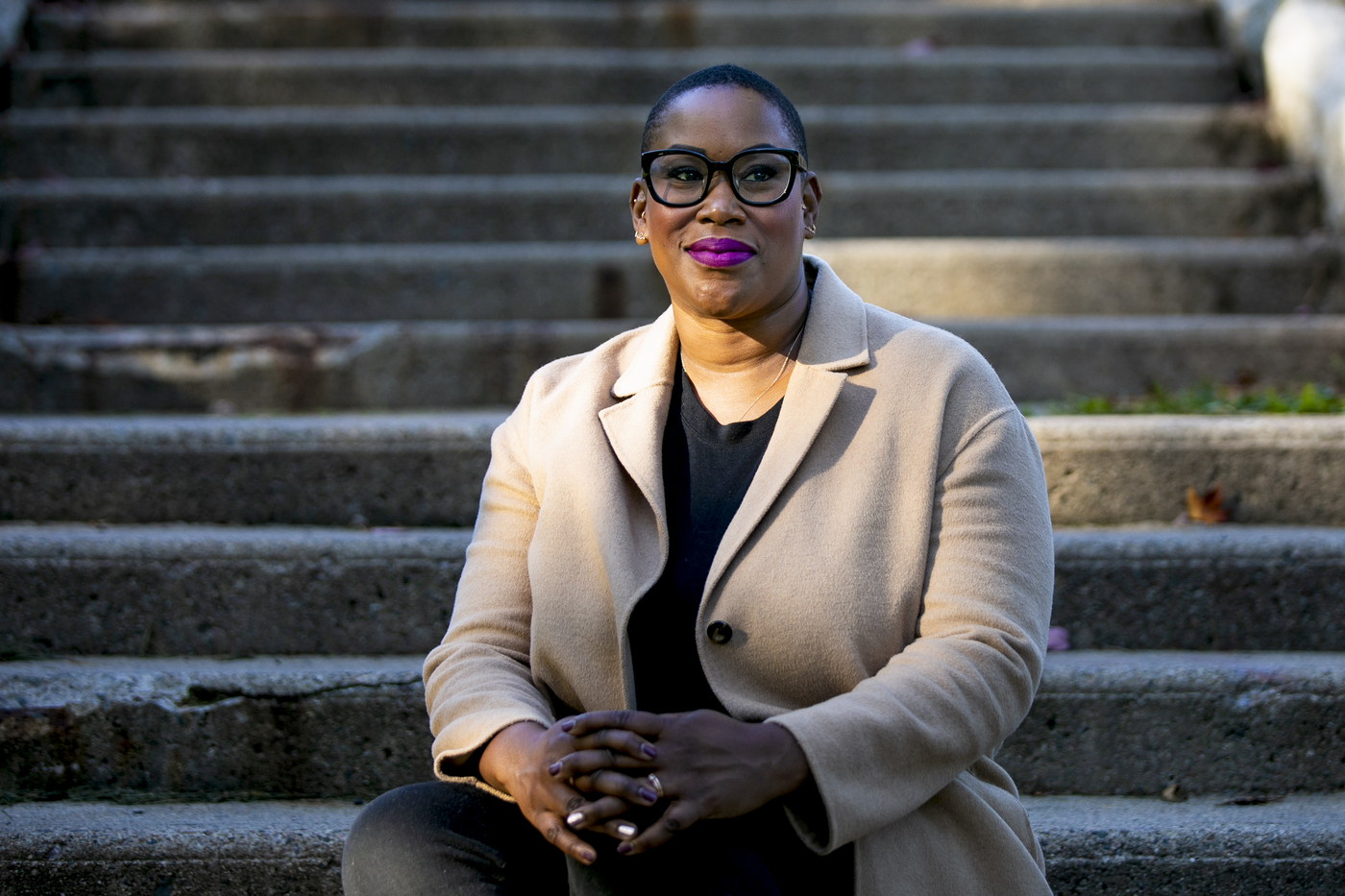What is the future of Black Twitter under Elon Musk?

Black Twitter, a subset of the platform distinguished by its hashtag, has been supporting and driving causes in the U.S.—including the Black Lives Matter movement—for more than a decade. But the future of the online community is in doubt now that Elon Musk has bought Twitter, says Meredith Clark, an associate professor and founding director of the Center for Communication, Media Innovation and Social Change at Northeastern.

“I have to think about how this place may shift under the ownership of someone who is a son of apartheid, a billionaire who alleges that he’s concerned about free speech but espouses a definition of free speech that is not at all in line with either the legal precepts that we understand or its practice in the United States,” says Clark, author of the upcoming book, “We Tried to Tell Y’all: Black Twitter and the Rise of Digital Counternarratives.”
Musk, 50, was born and raised in South Africa during its apartheid era before moving to North America in 1989. He has been a U.S. citizen since 2002.
His $44 billion purchase of the platform has led to conjecture that he will reinstate the account of former President Donald Trump, who was banned by Twitter in 2021 “due to the risk of further incitement of violence” following the Jan. 6 attack on the U.S. Capitol.
Musk has indicated that his pursuit of free speech throughout society will enable controversial content to remain on Twitter—a reversal from the platform’s attempts to limit tweets that are construed as harmful, including harassment and hate speech.
Twitter co-founder Jack Dorsey has vouched for Musk, saying, “I trust his mission to extend the light of consciousness.”
Clark, whose book resulted from her 2014 dissertation on Black Twitter, spoke to News@Northeastern about the future of the community, her concerns over Musk’s leadership, and possible responses by Black people. Her comments have been edited for brevity and clarity.
What is Black Twitter?
It’s not a separate Twitter platform. #BlackTwitter is well recognized in terms of its influence on culture and politics.
In my book, I situate Black Twitter as a response to the incorrect and often absent coverage of Black communities, primarily in the United States but also throughout the world. I talk about how Black folks use Twitter as a means of producing what I call “digital counter-narratives” in real time, as we watch news and current events play out.
What might become of Black Twitter as a result of Musk’s ownership?
A lot of this is going to be: Wait and see how the platform changes.
The instant knee-jerk reaction was, “This is over and I’m leaving.” That’s a shared sentiment, but then within a day or two people were saying, “No, we’re not leaving, we’re going to be here raising hell and being ourselves [because] that’s what we have been doing all this time. Why would we stop now?”
If we do see an exodus that is quantifiable, I think that will come after a series of changes are made. If Elon Musk chooses to re-platform the 45th president [Donald Trump], or if the moderation policies change, I’m sure we’ll see some people leaving the platform.
If there is enough of an alternative for people to start congregating in other spaces, I think that we could see some change.
Generationally, it will be very interesting to see how Black Twitter migrates to another platform.
I make this point in the book: Just because a new technology is widely adopted, it doesn’t mean that the other technologies become obsolete. So I focus on Black digital resistance and centering Twitter in that way.
But I start with Freedom’s Journal, the first newspaper published by free Black men in the United States in 1827. Of the communicative technologies that Black people have adopted for our own use in very specific ways, none of those are obsolete. People are still using them. There are still Black weekly newspapers. There are still shows that are dedicated to topics and issues of concern to Black communities. There is still Black television programming that speaks to those audiences. The newsletters are still there, the chat boards are still there. All of those avenues for communicating with and about and for Black communities are still in use. And so I think the same thing will be said for Twitter as long as the company remains.
How did Black Twitter influence the Black Lives Matter movement?
I think about Black Twitter as connective tissue between people and movements and causes that were already seated in different areas.
The Black Lives Matter movement was developed out of connections among three activists who had already been on the ground working in immigration rights and the rights of domestic laborers. With the [Black Twitter] hashtag being visible, it could help amplify messages about organizing around reactions to police brutality and injustice in Black communities.
People who were previously in disparate locations and with different foci could all see each other and connect in real time. And that is how so many movements are able to catalyze and find connection and find that forward motion that they otherwise would have to get through a series of emails, a series of meetings. It shortens the distance and the time to next to nothing.
The Twitter sale has raised concerns over who will have access to Twitter as well as the potential for hate speech and exploitation of private data. Which poses the biggest risk?
It’s hard to prioritize, but I do think that the biggest risk is the data. I celebrated my 13th anniversary on Twitter two weeks ago. Thirteen years of using a platform every single day gives you a lot of information.
[Another] fear is that hate speech and harassment will run amok on the platform. But I think the thing that we really need to be attentive to is how this data is going to be used.
How will the new ownership affect groups that use Twitter to campaign for important issues?
Potentially what Musk could do is shift the playing field so that all opinions and all perspectives are considered equally valid. And that is troublesome.
Opinions are opinions. But the ones that are harmful, hateful, discriminatory—having those amplified and supported by the person who actually owns the platform legitimizes dangerous speech in ways that we haven’t really seen yet.
The closest comparison is Rupert Murdoch and his ownership of Fox and publications throughout the world that serve as an amplifier for often unpopular perspectives. But a lot of those perspectives are part of the news. And so there is some sort of redeeming value to those perspectives having an outlet and having a place.
Whereas on Twitter, it is a free-for-all. How many followers do you have? How loud can you be? What is reality? What is fiction? What is fact? What is conjecture? We don’t have any of that on Twitter, not formally—not in the same sense that we do with news production.
What do you think would have become of Black Twitter if Elon Musk had owned the platform all along?
The one thing that Jack Dorsey did very well was that he did not let people know exactly where he stood. It took Jack Dorsey several years to come out and say: We’re standing up for racial justice, we’re standing up for social justice.
Elon Musk has told us who he is from the beginning, and I don’t limit that to issues of racial and social justice.
If he had owned the platform all along, and all things held constant—the same statements, the same allegations of discrimination in the workforce that he employs—I don’t think Black Twitter would have formed.
Now I could be wrong about that. In my early studies of Black Twitter, the reason that people were there as opposed to other platforms was because their family and friends and co-workers were not on Twitter at that time. So it was a place where you could have a bit more open conversation without the surveillance that comes from your close family units or the community that you have in offline spaces. And so I wonder if people would have continued to use it that way to simply do things like make plans with people as they did.
So I think people might have continued to use it that way. But the community-building—I don’t think it would have happened in the same way.
For media inquiries, please contact Ed Gavaghan at e.gavaghan@northeastern.edu or 617-373-5718.






